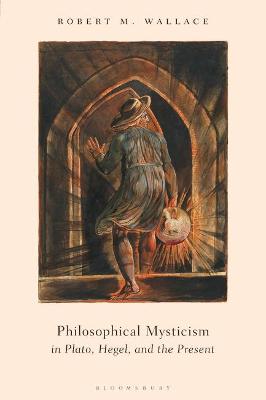
Philosophical Mysticism in Plato, Hegel, and the Present
(Paperback)
Publishing Details
Philosophical Mysticism in Plato, Hegel, and the Present
By (Author) Dr Robert M. Wallace
Bloomsbury Publishing PLC
Bloomsbury Academic
17th June 2021
United Kingdom
Classifications
Tertiary Education
Non Fiction
Philosophical traditions and schools of thought
248.2/2094
Physical Properties
Paperback
280
Width 156mm, Height 234mm
399g
Description
Few twenty-first century academics take seriously mysticisms claim that we have direct knowledge of a higher or more inner reality or God. But Philosophical Mysticism argues that such leading philosophers of earlier epochs as Plato, G. W. F. Hegel, Ludwig Wittgenstein, and Alfred North Whitehead were, in fact, all philosophical mystics. This book discusses major versions of philosophical mysticism beginning with Plato. It shows how the framework of mysticisms higher or more inner reality allows nature, freedom, science, ethics, the arts, and a rational religion-in-the-making to work together rather than conflicting with one another. This is how philosophical mysticism understands the relationships of fact to value, rationality to ethics, and the rest. And this is why Platos notion of ascent or turning inward to a higher or more inner reality has strongly attracted such major figures in philosophy, religion, and literature as Aristotle, Plotinus, St Augustine, Dante Alighieri, Immanuel Kant, Hegel, William Wordsworth, Ralph Waldo Emerson, Emily Dickinson, Whitehead, and Wittgenstein. Wallaces Philosophical Mysticism brings this central strand of western philosophy and culture into focus in a way unique in recent scholarship.
Reviews
[It] will be most beneficial for scholars and graduate students in theology and the philosophy of religion. * Reading Religion *
Robert Wallace has written a wonderful book and explained some extremely difficult philosophical and theological concepts in straightforward language. * Journal of Consciousness Studies *
This is a major contribution to philosophical discussions of mysticism. Wallace offers a compelling and accessible defence of Platos idea that we know a higher reality, explains how science can be part of this reality, and draws some important implications for an understanding of the fact/value distinction. He draws upon an impressive range of thinkers, writes with confidence and flair, and offers a decisive challenge to the reductive naturalist paradigm that drives so much contemporary philosophy. * Fiona Ellis, Professor of Philosophy and Religion, University of Roehampton, UK *
At a time when big picture Philosophy is out, Wallace boldly attempts to restore the perceived unity of scientific philosophical and religious endeavor. Primarily based on Platos and Hegels notions of the God within as also the Transcendent, he cuts the Gordian knot of Platonism through learned discussions of ancient & modern thought, including neglected mystical thinkers; e.g., J.N. Findlay. Wallace is indeed a contemporary American Transcendentalist! * Jay Bregman, Board of directors, International Society for Neoplatonic Studies, USA *
Author Bio
Robert M. Wallace is a philosopher and translator who as translated Hans Blumenberg, Hans-Georg Gadamer and Odo Marquard. He is author of Hegels Philosophy of Reality, Freedom and God (2005).
